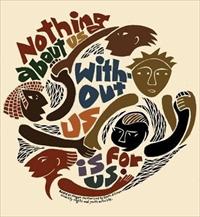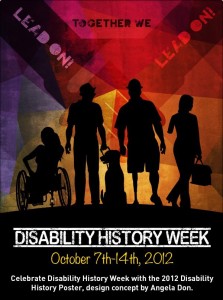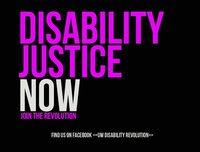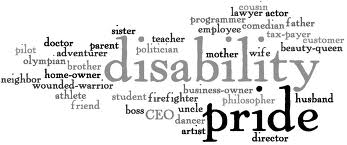On Insults in Dialogue
Here I am, late to the party, but this article on Skepchick got me thinking. Apparently, last month, there was a big blow-up about ableist language used in another post, and this Skepchick article addresses the issue. I don’t agree with much of the article, and I don’t hang out in the Skeptic community, but all that is really beside the point. What I find so interesting is the amount of words spent — both in the article and in the comments section — on the whole problem of whether it’s okay to use an ableist insult, whether anyone should care whether people are triggered, and whether we should all just get over being offended.
To me, words like “idiot” and “moron” and “stupid” are ableist, so I think that people were absolutely right to raise the issue. However, I think that there is something quite — I don’t know, odd? — about arguing over what kind of insults are allowed in dialogue. The whole problem could be solved by sticking to content, respecting the dignity of other people, and staying away from insults altogether, yes? Then you’d never end up with an ableist insult coming out of your mouth or off the keys of your computer.
The purpose of an insult is to hurt, to shame, and to demean. So is it any surprise that people who are uninvolved in the argument end up as collateral damage? Is it any wonder that sexism, racism, homophobia, transphobia, and ableism start creeping in when the insults start flying? After all, if an insult is meant to hurt, to shame, and to demean, then what better way to do it than to make implicit comparisons to people who are already hurt, shamed, and demeaned?
This is why I do my best to stay away from insults and why I’m not interested in anyone coming on my blog and launching them. It’s not just painful to the people involved; it has the potential to add to the marginalization of already marginalized people. And no, I don’t think we ought to be compiling lists of non-bigoted insults. I think we ought to be able to talk to one another with dignity about how to fix the problems in the world we live in.
But obviously, I’m a dreamer. Being harsh and cruel is so acceptable now that I often wonder why I even write these kinds of words. And then I remember that I write them so that others who feel as I do will know that they’re not alone. I write for people like myself, who would rather have an insult be a rare event and not a common and acceptable mode of communication.
I hope our culture can move back to valuing respectful dialogue. Of course, there is no reason to romanticize the past. It’s true that there have always been all kinds of disrespect and indignities visited upon millions of people, and respectful dialogue was not the experience of the many. I’ve experienced disrespect, indignity, and assault in my own life, and I come from a people that experienced it for many centuries. What I remember, though, from my earlier years as an activist, is that people who wanted to create a just world valued respecting people. They valued raising up people who were not respected into the light of dignity. They felt that the only way to create peace and justice was to model it. What I see now is exactly the opposite — that we’ve given into the idea that, because the world is a brutal and violent place, it’s somehow all right to be nasty with each other.
I don’t see our society valuing respectful dialogue any time soon — perhaps not even in my lifetime. I’m realizing that what I’ve worked so hard to do all of my adult life — to engage in civil dialogue while staying rooted in all of my emotions — is no longer of value to most people in the society I live in. This realization saddens me more than words can say.
© 2014 by Rachel Cohen-Rottenberg








Cheryl Alcorn
3/11/2014 | 6:44 pm Permalink
Thank you. What a thoughtful message in this insult weary world. I’m finding that the atmosphere of zingers, put-downs and outright derision that have become part of popular culture has also created a defensive backlash in many people. It’s difficult to hold a conversation with someone when adding a point to his point or saying something such as “Have you also considered…” is viewed as a possible insult to his intelligence. I’m coming across so many people who seem to be walking about with raised hackles, expecting to be insulted at every turn by a culture that somehow has come to prize the clever insult over civil discourse.
Rachel Cohen-Rottenberg
3/11/2014 | 6:58 pm Permalink
Cheryl, I have noticed exactly the same thing. It’s as though people are expecting to be attacked rather than respected. At times, it turns into their becoming hostile as a pre-emptive move. It’s especially clear on the Internet, but I’m seeing it in the wide world as well.
julesinrose
3/12/2014 | 4:24 am Permalink
I think human beings have never been all that great, so I try to refrain from thinking things were better in the past. On the other hand, we were taught civics when I was in elementary school. Learning the rules of civility was considered a necessary part of growing up. Even if we weren’t in a debate club, we knew that one did not attack the other’s character, only their ideas. We live a country where we now celebrate bad behavior by rewarding it with reality television shows, viral videos and, of course, financial incentive. Money is now the only metric of a successful person, and being fair and polite is clearly not considered useful or good on the road to riches in America.
First Lee
3/12/2014 | 11:07 am Permalink
On one hand, I agree with you. Insulting people in general is a bad idea.
However, I don’t understand why “stupid” is a disability slur. I understand it isn’t a nice word, I just don’t understand why it’s a slur.
Rachel Cohen-Rottenberg
3/12/2014 | 12:41 pm Permalink
First Lee, this is a really good question. “Stupid” seems more borderline than “idiot” or “moron,” which were actual clinical diagnoses and resulted in massive abuses. I think it depends on how the word “stupid” is used. It can be used to mean “unintelligent,” which makes it a slur, since that’s devaluing people of low IQ. Or it can be used to mean “willfully ignorant” or something similar, which simply means that the person hasn’t taken the time to learn something. I think that its association with low intelligence makes it suspect. I have used it to mean “failure to think something through in a considered way,” which doesn’t have anything to do with intelligence; it just has to do with an unwillingness to think at all. But my intent might not be clear. The impact might be to continue to devalue people of low intelligence. So I try to avoid using the word, but I don’t always succeed. Perfection really isn’t the goal here — more a willingness to consider how to say things without being insulting.
First Lee
3/12/2014 | 9:20 pm Permalink
Okay, thanks for answering. It’s given me a lot to think about.
julesinrose
3/12/2014 | 1:14 pm Permalink
Why would anyone *want* to use the word “stupid?” Is it useful? I can’t think of any reason it would be. Even when we think to ourselves, “Oh. I was stupid,” it’s a sloppy way of thinking. Alternatives: I made a mistake. I didn’t know all the facts. I ignored the facts. I could have done more studying. Etcetera.
I can’t find a single example of when saying someone else is stupid that would a good way of communicating with or about another person.
toddynho
3/13/2014 | 8:45 pm Permalink
“[T]he combination of socially banning everyday words that aren’t even slurs or anything (although some of them are getting elevated to that status in people’s minds, which quite disturbs me), and using a lot of academic jargon in discussions of oppression? And making both of these things necessary to discussing oppression in any serious way? Makes things extremely hard, if not impossible, for those of us with expressive or receptive language disabilities, and other cognitive disabilities.
“And you can’t spot a person with expressive or receptive language disabilities or cognitive disabilities just by how they write on the Internet. You don’t know which of us are getting shut out and shut up. Many of us are afraid to speak up because of the responses we’ve gotten. Many of us get extremely vehement, hostile responses when we try to bring up these issues.
“Just recently I read that there is absolutely no debate among people with developmental disabilities over whether the word stupid is bad to use — that all of us just automatically agree that it’s a horrible word that nobody should use. That’s not true. In fact, it’s not only not true, it’s covering up a truth that’s very important: Many people with developmental disabilities are unable to cut words like that out of our vocabularies even if we wanted to. And many of us have a very hard time expressing why it’s so hard. I have a better ability to communicate than a lot of people with equivalent cognitive impairments to mine, and it took me years to be able to articulate why this was a problem for me. Or even that it was a problem. This was years of difficulty, self-doubt, and shame over my inability to eliminate words that I was being socially pressured not to use. Sometimes I even agreed I shouldn’t use them and I still couldn’t eliminate them. It often put me off of even entering a lot of important conversations, because I knew I wouldn’t be able to abide by the rules. How many other people are silently dropping out of these discussions because the cognitive demands placed on them to drop very common words, or to use and understand very uncommon words, are too high?”
http://youneedacat.tumblr.com/post/79253741192/daxsymbiont-like-even-if-you-cut-nondisabled
Catia
3/25/2014 | 6:36 am Permalink
Thank you Rachel, I agree with what you have written. As the mother of a child with intellectual disability, insults like “stupid”, “idiot”, “moron” and, of course, “retard” are very clearly ableist to me. In fact, my 6 year old (who does not have intellectual disability) started using the word “stupid” for anything that she didn’t like or agree with it and I promptly corrected her and explained why I didn’t like it. Even if she didn’t use it in a literal sense, she used it in a negative sense whiles also knowing the literal meaning of the word – the combined effect of those things is still a “put down” of intellectual ability even if the usage was not directed at intellectual ability. It really grates with me how, especially in social media, the “default” way to disagree with someone without actually addressing the validity of what they are saying is to insult them though a put down of their intellect. To devalue people based on their intellectual ability is ableist. Another “pet peeve” is people who intellectualise that the use of words of that nature and argue that in a particularly context or objectively speaking, such words are not insulting. – that just seems wrong. If you do not have an intellectual disability, you do not get to have a say as to whether those words are insulting, because they were not directed at you and insults are not meant to be objective so judging by an “objective” standard is irrelevant. And if people with intellectual disability find words like that insulting or demeaning then that should be enough for anyone to accept that is the case. Awesome blog by the way!